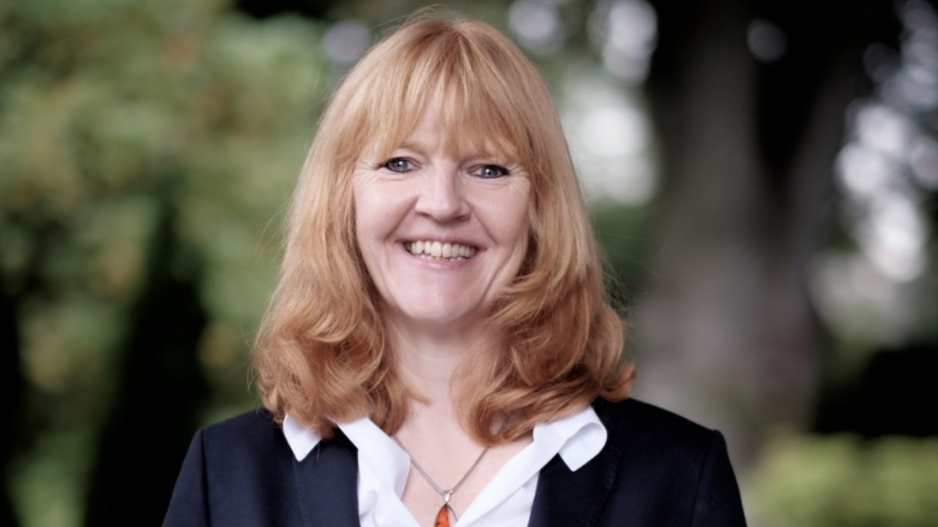Helen Goodland is co-founder, principal and head of research and innovation at Scius Advisory, a Vancouver boutique consultancy that, in the firm’s words, helps companies understand the technical and business implications of high-performance green building and construction projects.
Goodland grew up on a farm in the Lake District in northwest England.
After attending architectural school in Sheffield and London, Goodland joined Foster and Partners, the architectural firm that was started by Sir Norman Foster, one of the founders of modernist British architecture.
Three years later, Goodland and her Canadian husband, Kevin Hanvey (now principal and director of architecture at Omicron), moved to Vancouver and went to work for local architecture firms.
“What I noticed about Vancouver was that architects here were decision-takers, not decision-makers, which is what I wanted to be,” said Goodland. “I went out and got an MBA, so I could take advisory positions on building projects.”
Goodland’s first post-graduation job was with the Greater Vancouver Regional District (now Metro Vancouver).
“At that time, the public sector was where the action was,” she said. “That’s where you’d find the progressive policy thinking on such subjects as recycling and the circular economy.”
In 2011, Goodland created Brantwood Consulting, named after the home of John Ruskin, the founder of the modern environmental movement, in Coniston, England.
“At Brantwood I was part of a large network of experts throughout B.C. and the rest of Canada who were riding the sustainability wave,” she said. “We all knew our respective strengths and areas of expertise, and we worked on some big projects together.”
In 2015, Goodland convinced the Crown agency BC Housing and the BC Construction Association to collaborate with Brantwood on developing a vision of how construction in British Columbia should be undertaken in the future.
“Until that time there had been a lot of lip service paid to sustainability, but buildings were still being built inefficiently,” she said. “I knew there had to be a dramatic change in the way they are constructed.”
The result of the collaboration was a report titled the Construction Innovation Project/A Vision for BC, which argued that B.C. construction needed to innovate “or risk being left behind.”
The Construction Innovation Project was so well received that it won a Clean50 national sustainability award.
In 2017, Brantwood became Scius.
“Brantwood needed to become bigger, and I wanted a fresh look, with more people and different points of view,” she said.
Scius is acting as research manager for Vienna House, BC Housing’s zero-emissions rental apartment complex in East Vancouver.
“Vienna House will yield a wealth of lessons and there will be a number of research projects that will capture those lessons, once groundbreaking on the complex takes place in May [2023],” said Goodland.
The projects include a study of building adaptation and resilience, tests of building vibration and acoustics and a comparison of cross-laminated timber and cold-formed steel structural systems.
Apart from its duties with Vienna House, Scius recently created a database of mass timber projects and production capacity across Canada, to get a handle on the current state of mass timber construction capacity across the country.
The database includes 485 projects from 2007 until the present day that have been completed or are under construction. In total, the projects cover more than 16 million square feet of gross floor area.
Scius tracked the critical metrics of ON5, a four-storey office building in Mount Pleasant during the construction of the mass timber building.
While ON5 was being built, Scius researchers attended project meetings, visited the work site, interviewed the project team and reviewed project documentation.
In addition to helping lead Scius, Goodland is on the board of directors of Building Transformations (formerly the Canada BIM Council, or CanBIM), and the advisory board of the University of Victoria’s green civil engineering program.
“Although construction has been innovating to respond to the many challenges it faces, the pace of innovation needs to pick up,” said Goodland.
“The industry faces limited resources, inadequate labour supply and restrictive regulations, which means we need to do more in less time. To do that we need to learn how to work together better, to be more collaborative and trusting.”
Construction also needs to put more effort into attracting and retaining women in the industry, she says.
“Women need to see other women in the top jobs,” she said. “To bring new female blood into construction, women leaders need to be visible and make it clear what success looks like.”




